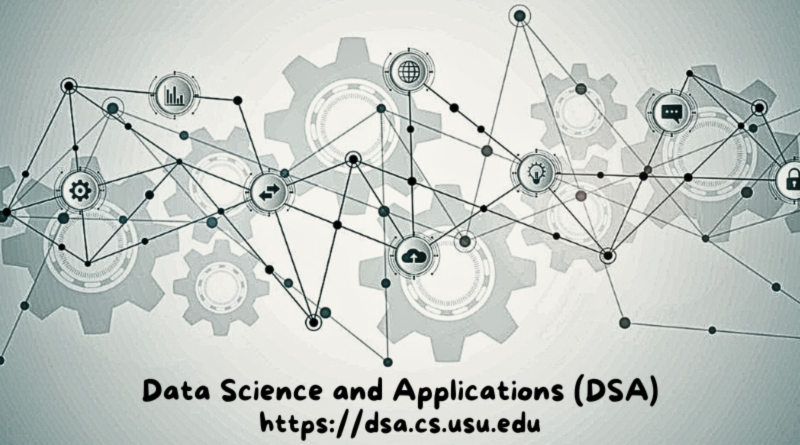The research conducted in our lab focuses on two primary areas: Educational Data Mining and Social Media and Network Analytics plus the fascinating intersection between these two fields. Our research in Educational Data Mining aims to enhance our understanding of educational processes by analyzing data from diverse sources within learning environments. Simultaneously, our work in Social Media and Network Analytics investigates the patterns, trends, and insights that can be extracted from the vast amount of data generated by users on various platforms. At the intersection of these two areas, we explore how social media platforms serve as a hub for teachers, students, and other educational stakeholders. By delving into these interconnected research domains, our lab strives to contribute to the advancement of data-driven decision-making in education, as well as to foster a better understanding of the complex relationships between social media and learning outcomes. In addition, our work extends to cross-disciplinary applications of machine learning in science and engineering, where we actively collaborate with researchers from various STEM fields, such as climate science, engineering education, and civil engineering. This interdisciplinary approach allows us to leverage machine learning techniques to address pressing challenges and develop innovative solutions across a wide range of scientific and engineering disciplines.
Educational Data Mining
Educational Data Mining (EDM) is an interdisciplinary field that focuses on the development and application of data mining, machine learning, and statistical techniques to analyze and extract valuable insights from the vast amounts of data generated in educational settings. This data can include student demographics, academic performance, online learning behavior, and social interactions, among other sources. By applying data-driven methodologies, EDM aims to enhance the understanding of various educational processes, ultimately contributing to improved learning outcomes, teaching strategies, and educational policy. Key areas of our exploration within EDM include:
- Student modeling: Developing predictive models to understand individual learning trajectories, identify at-risk students, and offer personalized learning experiences specially in Massive Open Online Courses (MOOCs)
- Graph mining and analysis: Examining the structure and dynamics of interactions among eductional entities (e.g., students and courses), with the aim of identifying the role of peer influence and collaboration in learning processes.
- Learning analytics: Analyzing and visualizing student data to uncover patterns, trends, and correlations, which can inform instructional design, curriculum development, and real-time intervention strategies.
- Teachers in Social Media: A key area of exploration within EDM involves studying teachers' presence and interactions on social media platforms. This research can help identify the role of social media in professional development, collaboration, and the exchange of teaching resources and strategies.
Educational Data Mining has the potential to transform the way we approach teaching and learning, by providing valuable insights into the complex processes underlying education and enabling data-driven decision-making to improve educational outcomes for students.
Social Media and Network Analytics
Social media and network analytics involves the study of patterns, behaviors, and interactions across digital platforms such as Twitter, Facebook, and Instagram. By modeling users and their connections as graphs, researchers can analyze influence, information diffusion, community structure, and engagement dynamics. This field combines techniques from data mining, graph theory, and machine learning to uncover insights about social trends, public opinion, misinformation, and online communities.
- Making sense of user-generated content: Developing techniques and algorithms to process, understand, and extract insights from the predominantly text-based data created by social media users.
- Investigating friendship patterns: Analyzing the connections and interactions between users to understand the dynamics of online relationships and how they influence social media behavior.
- Information credibility: One crucial aspect of social media mining is evaluating information credibility, which involves investigating and mitigating the spread of misinformation and disinformation on social media platforms. Our research team focuses on developing cutting-edge algorithms and tools to identify, assess, and counteract the proliferation of false or misleading information on social media. By analyzing the complex interplay between content, users, and networks, we seek to better understand the factors that contribute to the spread of misinformation and disinformation, as well as their impact on public opinion and decision-making.
- Applying and revising social theories: Utilizing existing social theories to explain phenomena observed on social media, while refining and updating these theories based on new findings.
- Exploring additional aspects of social media mining: Delving into other facets of social media mining, such as sentiment analysis, trend identification, and the influence of social media on various industries.
By studying social media mining from these diverse angles, we aim to gain a comprehensive understanding of how users interact with social media platforms, the nature of the content they produce, and the broader implications of these interactions on society.
Other Projects
- Fairnness in ML: In this research direction, we focus on detecting biases in machine learning models and developing fair algorithms. Our approaches can be applied to various domains, such as natural language processing, recommender systems, and education--See this paper and this one
- Decision Boundary of Deep Neural Networks: In this project, we aim to delve into the inner workings of deep neural networks by examining their decision boundaries. This allows us to demystify their opaque and black-box behavior, providing a better understanding of their underlying mechanisms-- See this paper
